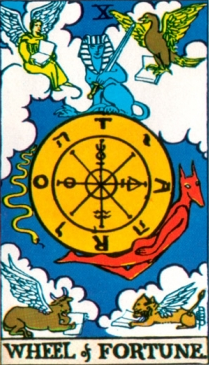
Whether it’s Vanna White that spins the wheel,

The Greek Moirae,
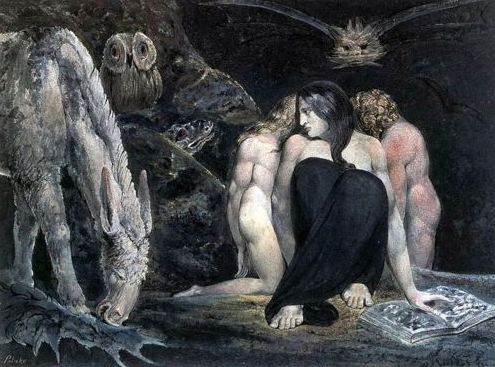
The Norse Norns,
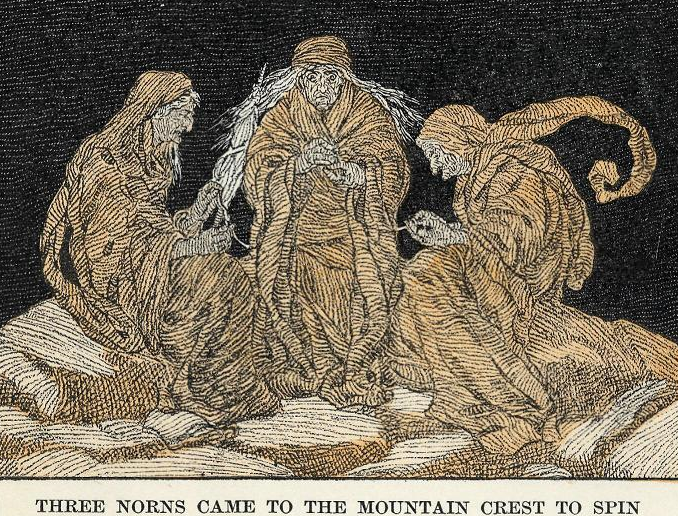
or Shakespeare’s Weird Sisters,
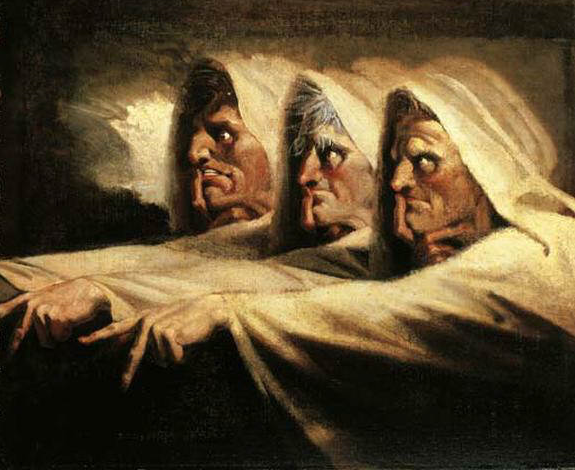
this card is about Fate, i.e., Luck.
And as you can see, Luck is always a Lady, and she’s usually not real pretty.
Like the Three Fates, there is a remorseless inevitability about this card, and I have never understood why most readers regard it as benefic. Fortune is not the same thing as fortunate.
Seven days after a child is born, The Three Moirae, come to the infant’s hearth and determine the babe’s fate. Clotho spins the life thread, Lachesis measures it, and Atropos cuts it off. They are remorseless and powerful. Even Zeus bows to their authority. Once a destiny has been spun, measured, and cut there is no changing it.
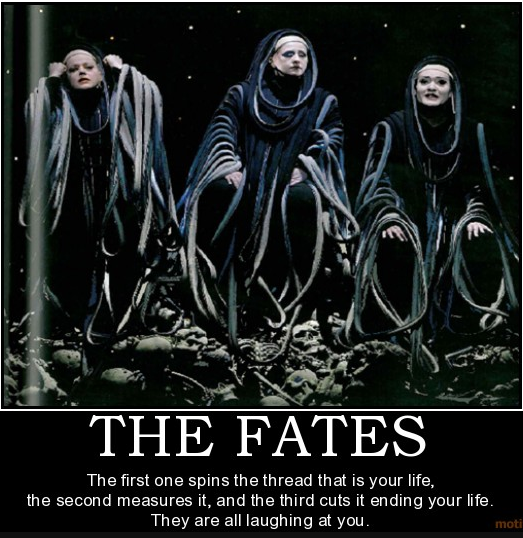
But who wants to surrender their free will to three cantankerous old ladies? We live in a time when marvelous advances in medicine and technology have given us the illusion that we are actually in control of things. Most of us believe that if we make good choices, good things will happen and if we make bad choices, bad things will happen. So in this day and age, The Wheel of Fortune is often read as the working out of cause and effect—the Christian belief that we reap what we sow and the Hindu concept of karma.
Atheists and Agnostics would recognize the law of cause and effect as the main determinant of fate. But since an atheist believes that when you’re dead you’re dead and an agnostic believes that when you’re dead you’re probably dead, neither would buy into the law of karma, since it usually assumes a belief in reincarnation, which says that karmic debt from past lives carries over into one’s present life.
Since our present life is influenced by our past lives, I see karma as a sort of predestination.
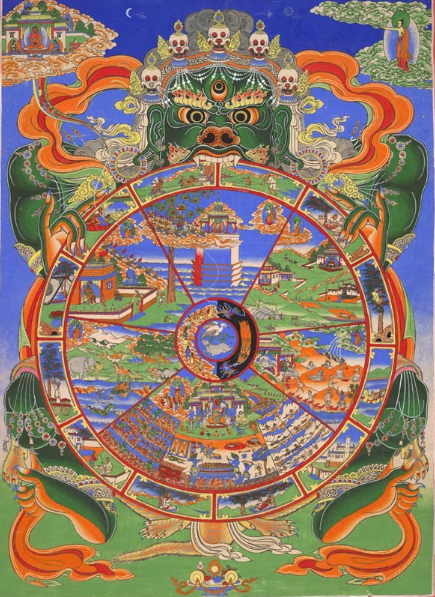
Reincarnation was acceptable doctrine in the early Christian church until 553 CE when the Second Council of Constantinople ruled against it. Today it seems that most Christians believe that a combination of cause and effect and God’s judgment turns The Wheel of Fortune. Presbyterians believe in predestination, but put a different spin (pun intended) on it. They see it as the affirmation of the sovereignty and freedom of God and do not reject human choice and responsibility.
The Greek civilization has held many beliefs and philosophies over the centuries. One of these was the concept of metempsychosis, or the passing of the soul at death into another body, either animal or human. Perhaps The Fates don’t spin our destinies from a new distaff, perhaps they work with the wool we have gathered from our past lives to spin the most spiritually nourishing present life possible. This doesn’t necessarily mean that it will be a pleasant life, but it will be the one that will help us evolve into spiritual beings and reunite with the divine, which is the goal of all the major religions.
The Wheel of Fortune card can signify any or all of the above, depending on the belief system of the reader and the belief system and situation of the querent.


5 thoughts on “The Major Arcana and The Hero’s Journey: The Wheel of Fortune, Part I”
. . .and where it falls in the reading. Having read at several high school graduation parties, I can say The Wheel is a popular card that night. In fact, the Major Arcana cards most likely to show up on Graduation Night are: The Lovers; The Tower, The Wheel and Judgement. The Chariot also shows up, but rarely alone in its “Major-ness.”
Thank you! I Love your writing! It is easy for me to understand.
It has given me a deeper understanding with much Joy
Your Amazing!!!!
Thanks, Coral.
I’m glad it helps.
Hugs to you.
Another enjoyable post.
When it comes to fate, I have always liked Carl Jung’s quote: “When an inner situation is not made conscious, it appears outside as fate.”
–Malcolm
So true.
The main benefit psychotherapy, as far as my novice brain can tell, is that when we’re “done” we know why we are miserable.